US election: The cards that sum up the Democratic race
- Published
- comments
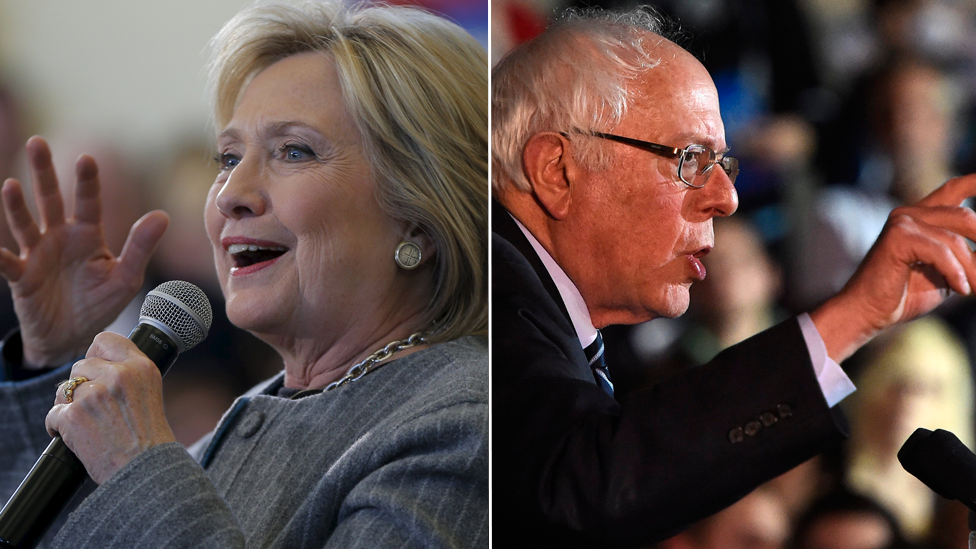
Three Democratic candidates are fighting for their party's nomination for the White House. After months of campaigning their first electoral test, in Iowa, has arrived.
While there's fewer candidates to keep track of than the Republicans, two of the three candidates may not be as well known to an international audience.
If only there was a simple way to compare their strengths and weaknesses...
Who's got the most campaign money? Who really electrifies a crowd? What is their Achilles heel?
All your questions are answered - on a candidate card, so you can test the powers of one against the other.

Hillary Clinton
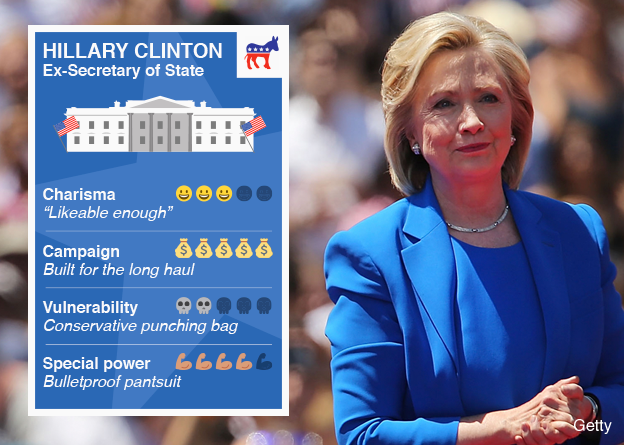
It was supposed to be smooth sailing for Clinton to the Democratic nomination. She was universally beloved in her party, thanks to being a team player after her 2008 loss to Barack Obama.
She raised unprecedented amounts of funds and had built a campaign juggernaut to win it all this time. Since she announced her candidacy in early 2015, however, some of her old flaws have once again come to light.
She's at times struggled to connect with voters. Controversy around her use of a private email server as secretary of state has renewed doubts about her honesty and openness.
And there's been enough space on her political left flank for an unlikely competitor, Bernie Sanders, to mount a serious challenge - at least in the early voting states of Iowa and New Hampshire. She's still likely to win, but it's shaping up to be a long, hard slog.

Bernie Sanders
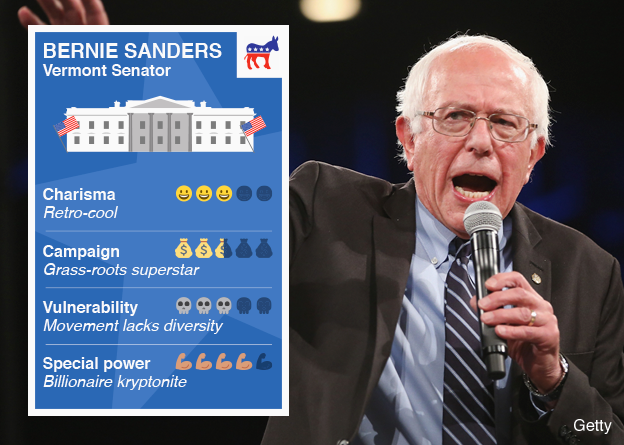
A frumpy septuagenarian with a Brooklyn accent may seem an unlikely vehicle for disaffected young liberal voters and progressive true-believers, but Sanders - the self-professed democratic socialist - has become the leader of a movement.
With his calls for free college education and condemnation of the "billionaire class", he's drawing crowds in the thousands for his political rallies.
His grass-roots fundraising has given him the resources to go toe-to-toe with Clinton in Iowa and New Hampshire, where he threatens to post early wins.
The real test, however, will be when the Democratic contests move to more diverse in the south and west, where his lack of minority appeal up until now many prove an insurmountable obstacle.

Martin O'Malley
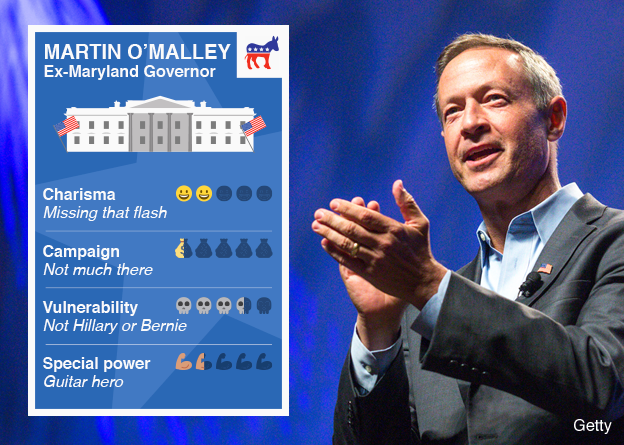
O'Malley was always going to be the longest of long-shots in the 2016 race, going up against the Clinton machine that had locked up essentially all of the party support.
The former mayor has been snake-bit from the start, however. His handpicked successor as Maryland governor lost in a stunning upset last November.
And now his law-and-order bona fides as Baltimore mayor look highly questionable after the unrest there following the death of Freddie Gray while in police custody.
The 53-year-old politician who still plays guitar in a rock band has tried to paint a generational contrast with his older opponents, but it appears to be to no avail. He seems destined to be stuck between Clinton's establishment rock and Sanders's progressive hard place.

More on the Democratic race
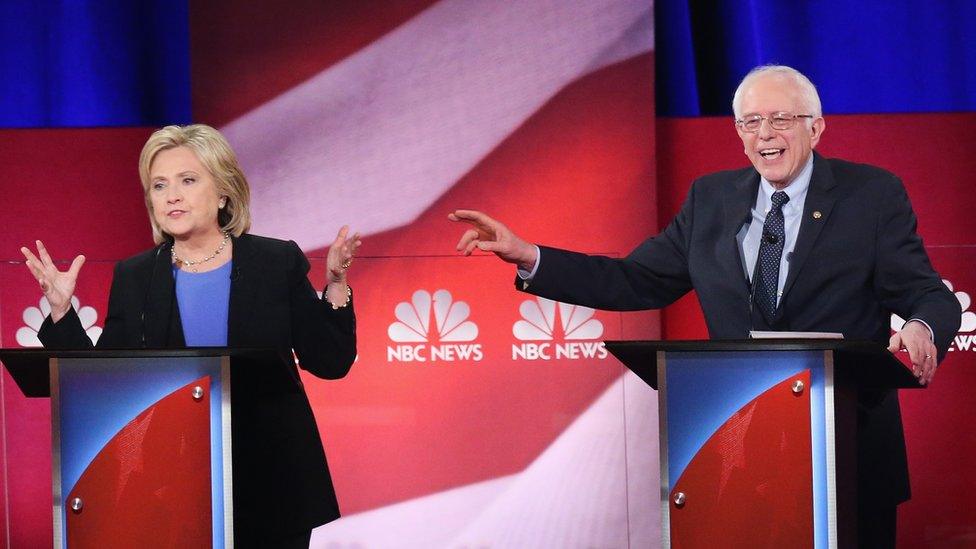
And 60-second summaries of the stump speeches
What does Hillary Clinton say in her stump speech? A 60 second summary of her greatest hits
What does Bernie Sanders say in his stump speech? A 60 second summary of his greatest hits